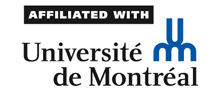By
André Blais, Université de Montréal
Elisabeth Gidengil, McGill Université
Anja Kilibarda, Columbia University
What’s the story?
Recent research suggests that trust in governments in postindustrial democracies has eroded. In fact, citizens increasingly believe that governments are unresponsive to their needs, and they frequently hold politics and politicians in low esteem. Perceptions of corruption have in turn fed into a democratic malaise. This study analyzes how partisanship and political information influence perceptions of government corruption.
We test four hypotheses:
H1: Partisans of incumbent parties perceive less corruption in government than nonpartisans.
H2: Partisans of opposition parties perceive the same amount of corruption in government as nonpartisans.
H3: The better informed perceive less corruption than the less informed.
H4: The impact of partisanship on perceptions of corruption is weaker among the better informed.
The data
We examine citizens’ perceptions of the degree of corruption in government in 11 elections between 2009 and 2013 by looking at survey data from collected before elections held in Canada, France, Germany, Spain and Switzerland, as part of the Making Electoral Democracy Work project. The respondents were asked to indicate how much corruption they perceived (hardly any, a little, some, a lot) in government. We ascertain the impact of partisanship and political information in diverse settings by looking at a variety of countries and regions within these countries and at elections at different levels (national, subnational, supranational).
The results
Our results confirm the first three hypotheses. Partisans of governing parties systematically perceive less corruption than non-partisans but who identify with opposition parties do not see more corruption than non-partisans. Additionally, the better informed are more prone to challenge the conventional wisdom that there is a lot of corruption in government. We do not find support for the fourth hypothesis, however; the impact of partisanship is not weaker among the better informed.
There is one important exception. In Quebec (and in Quebec only), the better informed perceive more corruption than the poorly informed. This may be related to the fact that the 2012 Quebec election took place amidst allegations of widespread corruption. It is possible that in the context of a new emerging scandal, the well informed are more likely to learn about it and are then more likely to revisit their pre-existing judgments.
Conclusion
Our results clearly show that people view government corruption through a partisan filter when ‘‘their’’ party is in power. However, the workings of the partisan screen have proved to be asymmetrical: There is little evidence that partisans of opposition parties perceive more corruption in government than nonpartisans. Finally, most of the time, the less informed are prone to see more corruption than their better informed counterparts.
For more details, see
André Blais, Elisabeth Gidengil, and Anja Kilibarda. Forthcoming. Partisanship, information and perceptions of government corruption. International Journal of Public Opinion Research (forthcoming)
